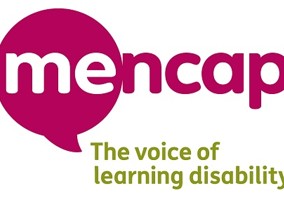On the face of it, the sleep-in back-pay crisis feels grossly unfair to learning disability charities and the people they support – as Mencap's Angela Buxton points out in this month's magazine, they look set to be penalised for following the rules as they stood at the time.
But it’s a hugely complex issue for the Department of Health and Social Care (DHSC); none of the available solutions are perfect. If they agree to pay the back-pay bill themselves, they will be bailing out several highly-geared private-equity-backed commercial providers as well as a number of charities. If they go for the “cladding option” – named after the change in policy post-Grenfell that saw the government pay for the replacement of substandard cladding on social housing, but not on buildings owned by private developers – that would impact hugely on beneficiaries of the private-sector providers, who have the largest market share among the biggest employers. And if they offer to support those that can’t pay, that would penalise those responsible, well-run charitable providers who have built up reserves through donations, while offering a lifeline to the debt-ridden private-equitybacked organisations.
Those who sat through the Court of Appeal case brought by Mencap say the judges were doing their best to find a balance between the original intention of the law, the latest interpretation of the law, and the impact that their decision will have across the sector, not only for organisations, but also for individuals who employ their own staff, for whom the judgment could mean personal bankruptcy. Striking that balance cannot be easy, which is probably why the ruling still hasn’t come, months after it was expected.
On the plus side, the debacle has at least succeeded in waking the government up to just how large and important the learning disability sector is. When political parties talk about adult social care, they usually mean older people – a group that comprises a large contingent of voters. NHS Digital’s own figures show that statutory spend on adult learning disability is almost as high as spend on care for older people, and is rising faster – but before this case, the DHSC was, apparently, blissfully unaware of this fact. One charity told G&L that ministers and officials also showed a “shocking lack of insight into how the market operates”, particularly the power imbalance between local authority commissioners and service providers, which means the whole sector has been over-risked and under-rewarded for years. Now that the government has a greater understanding of the market and the shortcomings in the way it is funded, we can only hope it might see opportunities to step in and deploy interventions that can achieve the “efficient and effective market” that is required by the Care Act 2014. A first step would be to consider funding outcomes rather than hours, enabling providers to hire skilled staff at higher rates if they wish and drive up productivity, something that is almost impossible to achieve under the current system.
That said, few of the 173,000 adults with a learning disability who receive a statutory service go to the polls, so there may be little incentive for ministers to ensure their services are protected or improved. The sector can only hope that they will see beyond their own self-interest, and alight on the best possible solution for the thousands of individuals who are, after all, among the most vulnerable adults in society.
Since this article was written, the Court of Appeal overturned the £400m sleep-in shift ruling in favour of Mencap. Read about it here.
Related articles












